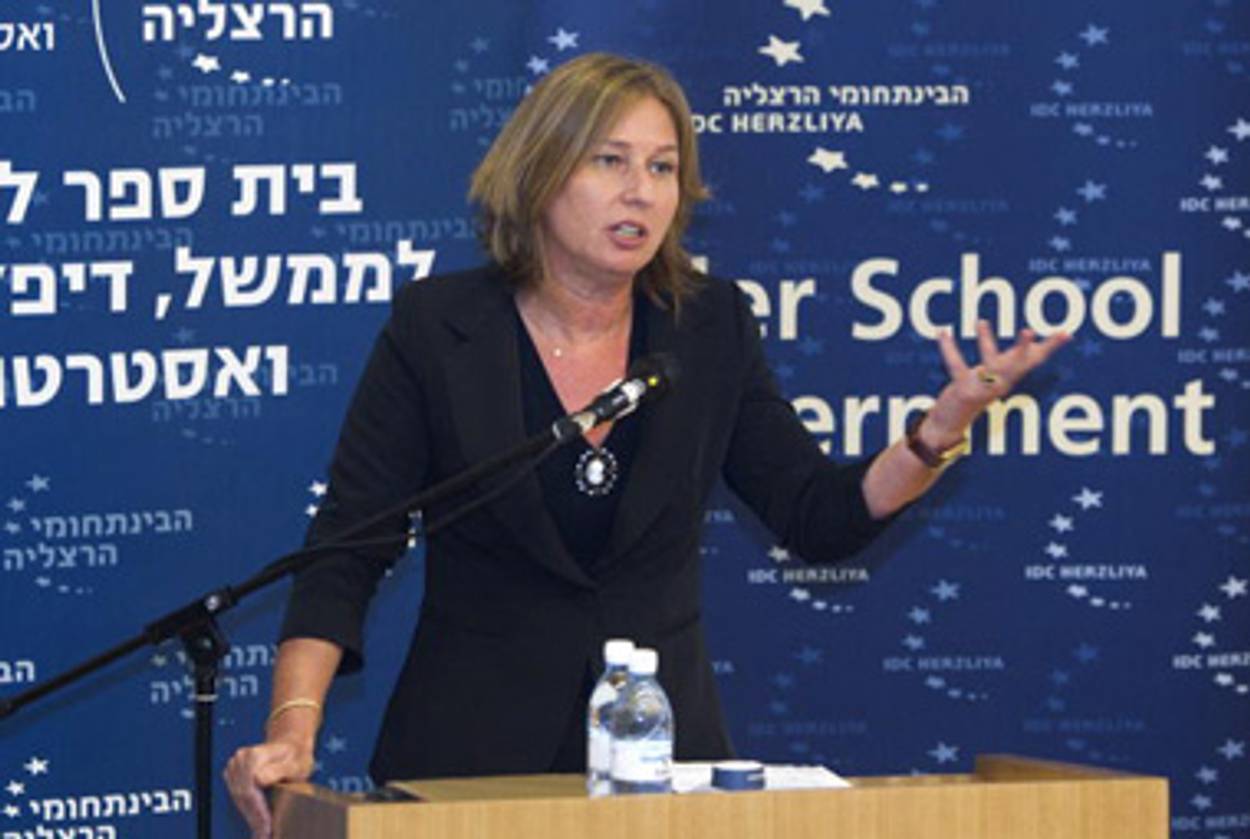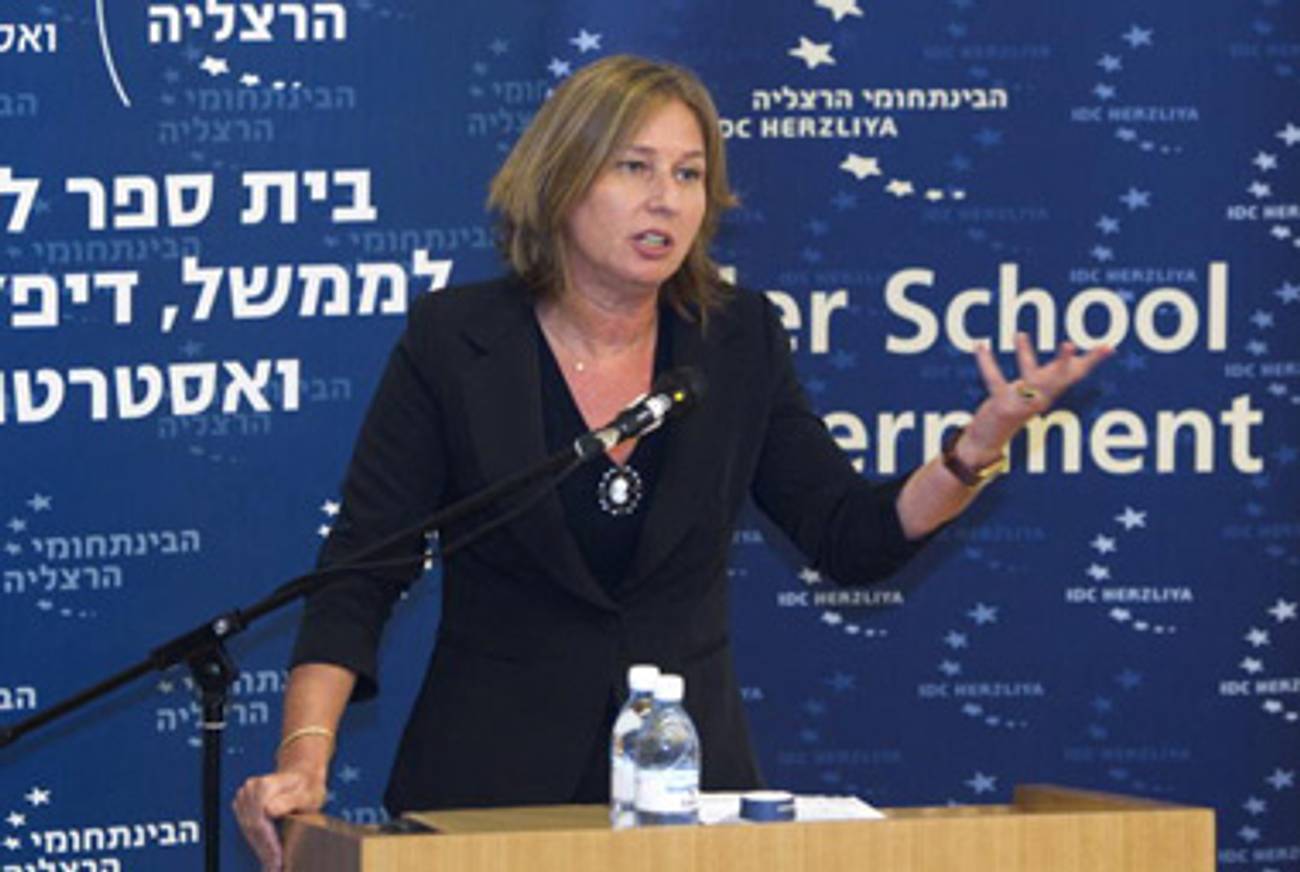All We Are Saying Is Give Women a Chance
Livni pushes for female presence in peace talks




After Labor politicain Einat Wilf brought the issue up, Kadima head and chief opposition leader Tzipi Livni argued that, for the benefit of peace, social advancement, and perhaps adherence to a U.N. resolution, women should be more involved in Israeli-Palestinian negotiations. “It is women’s right to determine their future and that of the country,” she said, “and their power is first and foremost political. The struggle is over presence in decision-making chambers.” (Last month, contributing editor David Samuels interviewed Livni in Tablet Magazine.)
Wilf forced the issue because yesterday was the tenth anniversary of U.N. Security Council Resolution 1325, which “urges Member States to ensure increased representation of women at all decision-making levels in national, regional and international institutions and mechanisms for the prevention, management, and resolution of conflict.” Of course, U.N. resolutions are not uncontroversial matters in Israel, and indeed the main group that pushes adherence to 1325, the Women’s International League for Peace and Freedom, is a pacifist outfit that was highly critical of Israel’s conduct during the Gaza conflict. (The group’s prominence on the issue also meant that one article read, “Wilf did not mention WILPF.”)
Meanwhile, those looking for tea leaves into Israel’s confusing coalition politics will note Defense Minister and Labor leader Ehud Barak’s response to Livni: “Today there are no longer negotiations, and it is not unthinkable that when there are, we will add a woman,” he said. “In that case, I prefer Tzipi Livni and not [Likud MK] Tzipi Hotovely.”
‘Women Should Be More Involved in Peace Negotiations [JPost]
Labor MK Wants Women in Peace Talks [Arutz Sheva]
Related: Q&A: Tzipi Livni [Tablet Magazine]
Marc Tracy is a staff writer at The New Republic, and was previously a staff writer at Tablet. He tweets @marcatracy.